Brazil, Cuba aid cholera-hit Haiti
World News Nov. 23, 2010
BRASILIA: Brazil, Cuba and some Brazilian universities have joined forces to provide health care to cholera-ridden Haiti, including building a treatment centre near its capital, the Brazilian Health Ministry said Monday.
The ministry said it signed agreements with Federal University of Rio Grande do Sul and Federal University of Santa Catarina to set up a network of health clinics and train 2,340 health workers in Haiti.
“All the activities will be organised with the collaboration of health teams from Haiti and Cuba made up of doctors, nurses and epidemiologists,” it said in a statement.
A separate agreement is expected to be signed later this week with Cuba and the World Health Organisation to create a cholera treatment centre in Carrefour, near Port-au-Prince, to contain the cholera epidemic, the ministry said.
Health workers are already being trained in Carrefour, it added, and Cuba will supply construction workers for the project and later doctors and nurses for the center.
The agreements are part of the humanitarian and financial aid package Brazil promised after Haiti’s devastating January 12 earthquake that killed some 250,000 people and left 1.3 million people homeless.
The cholera epidemic that broke out in mid-October in northern Haiti has so far killed more than 1,300 people and infected more than 57,000, putting in question Sunday’s presidential election.
-AFP/wk
Cuba to send medical reinforcements to Haiti
November 27, 2010
By Shasta Darlington, CNN
Fidel Castro announced Saturday that Cuba will send another 300 doctors and health specialists to cholera-stricken Haiti, where the Communist country has maintained a strong presence even before the devastating earthquake in January.
The new delegation will bring the number of Cuban doctors, nurses and health technicians working in Haiti to 1,300.
“It is of extreme importance to prevent the epidemic from extending to other countries in Latin America and the Caribbean, because under current circumstances it would cause extraordinary damage to the countries of the hemisphere,” Castro said in a message posted on the state-run website Cuba debate.
“The need to find efficient and fast solutions in the fight against the epidemic is upon us,” he said.
The additional 300 specialists comprise the “Henry Reeve Brigade,” created by Cuba to respond to natural disasters.
Castro said the decision to send them was taken by the Communist Party and the government.
Reflections by Comrade Fidel
http://www.cuba.cu/gobierno/reflexiones/2010/ing/f261110i.html
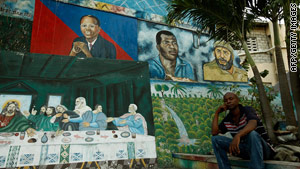
A Port-au-Prince wall painting depicts Jesus, ex-president Aristide, footballer Emmanuel Sanon and Cuba's Fidel Castro
Just a few months ago, on July 26, 2010, Lucius Walker, the head of the American organization Pastors for Peace, at an encounter with Cuban intellectuals and artists, asked me what the solution for Haiti’s problems would be.
Without a second’s delay, I told him: “In today’s world, there is no solution, Lucius; in the future of which I am speaking, there is. The US is a great food producer, it can feed 2,000 million people, it would be able to build homes that stand up to earthquakes; the problem is the way in which resources are distributed. We have to return even the forests to Haitian territory; but there is no solution in today’s world order.”
Lucius was referring to the problems of this mountainous, over-populated country, stripped of trees, of fuel for cooking, communications and industries, with a high rate of illiteracy, diseases such as HIV and being occupied by United Nations troops.
“When those circumstances change –I added — you yourselves, Lucius, will be able to take American food to Haiti.”
The noble and humanitarian leader of the Pastors for Peace died a month and a half later, on September 7th, at the age of 80, passing on the legacy of the seed of his example to many Americans.
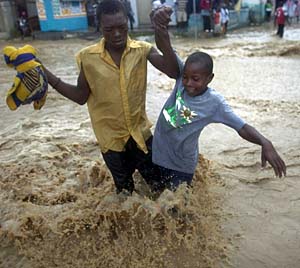
People wade through a flooded street during Hurricane Tomas in Leogane, Haiti Nov. 5 AP Photo Ramon Espinosa
An additional tragedy had not yet appeared: the cholera epidemic which, on October 25th, reported more than 3,000 cases. To such a harsh calamity, add the fact that on November 5th, a hurricane ravaged its territory, causing flooding and rivers to overflow.
We must dedicate to this body of dramatic circumstances the attention it deserves.
Cholera appeared for the first time in modern history in 1817, the year in which one of the great pandemics occurred devastating humanity in the nineteenth century; it had a huge mortality rate principally in India. In 1826, the epidemic reappeared, invading Europe, including Moscow, Berlin and London, moving on to our hemisphere from 1832 to 1839.
In 1846, a new even more harmful epidemic is unleashed, striking at three continents: Asia, Africa and America. Throughout the century, epidemics affecting those three regions were repeated occurrences. However, in the course of more than 100 years, taking in almost the entire twentieth century, the countries of Latin America and the Caribbean saw themselves freed from this disease, until January 27th, 1991 when it appeared in the Chancay Port in northern Peru; first it extended along the Pacific coast and subsequently along the Atlantic seaboard, to 16 countries; 650,000 persons became ill in a period of 6 years.
Without the least doubt, the epidemic affects much more than poor countries in whose cities over-populated neighbourhoods are massed together, many times lacking drinking water, and the sewers which are carriers of the vibrio cholerae that spreads the disease pour into the drinking water.
In the special case of Haiti, the earthquake destroyed the water and sewer network wherever they had existed, and millions of people live in tents that often even lack latrines and everything gets mixed up together.
The epidemic that affected our hemisphere in 1991 was the Vibrio cholerae 01 biotype El Tor Ogawa serotype, exactly the same one that penetrated Peru that year.
Jon K. Andrus, Associate Director of the Pan American Health Organization, informed that the bacterium that was present in Haiti was precisely that. From it derived a series of circumstances to bear in mind, which at an opportune moment will determine important considerations.
As we know, our country is educating excellent Haitian medical doctors and providing health services in that sister country for many years now. There were very serious problems in that field and we were moving forward, year after year. Nobody could imagine, since there was no history of it, that there would be an earthquake that would kill more than 250,000 persons and cause innumerable wounded and injured. In the face of that unexpected blow, our internationalist doctors pitched in with greater zeal and tirelessly dedicated themselves to their work.
In the midst of the harsh natural disaster, barely a month ago, the cholera epidemic broke out with a fury; and as we have already stated, in such unfavourable circumstances, the hurricane struck.
Faced with the serious nature of the situation, the United Nations Under-Secretary-General for Humanitarian Affairs, Valerie Amos, yesterday declared that 350 doctors and 2,000 nurses were needed to battle the disease.
The official made a call to extend the aid further than Port-au-Prince and revealed that supplies of soap and clean water were only reaching 10 percent of the families living outside of the capital, without indicating how many were being reached in that city.
Different UN officials were lamenting the fact in the last few days that the response from the international community to the call for aid made to confront the situation was not even reaching 10% of the 164 million dollars urgently being requested.
“Amos called for a swift and urgent reaction to prevent more human beings from dying of cholera”, informed a news agency.
Today another agency communicated that the numbers of Haitians who had died had now reached “1,523 persons, 66 thousand 593 have been cared for, and more than a million inhabitants are still sleeping in public squares”.
Almost 40% of the sick have been looked after by members of the Cuban Medical Brigade which has 965 doctors, nurses and technicians who have managed to reduce the number of dead to less than 1 for each 100. With that level of care the number of dead would not reach 700. As a norm, the people dying were extremely weakened by malnutrition or other similar causes. Children who are detected on time, generally do not die.
It is of vital importance that we avoid the epidemic extending to other countries in Latin America and the Caribbean because in today’s circumstances this would cause extraordinary harm to the nations in this hemisphere.
We urgently need to seek efficient and rapid solutions in the fight against that epidemic.
Today the Party and the Government [of Cuba] made the decision to reinforce the Cuban Medical Brigade in Haiti with a contingent of the Henry Reeve Brigade, made up of 300 doctors, nurses and health technicians, that would add up to more than 1,200 collaborators.
Raul was visiting other regions of the country and was informed in detail about everything.
The people of Cuba, the Party and the Government, are once again measuring up to their glorious and heroic history.
Fidel Castro Ruz

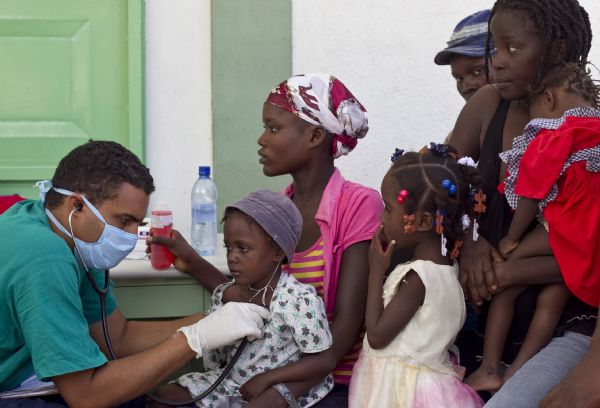
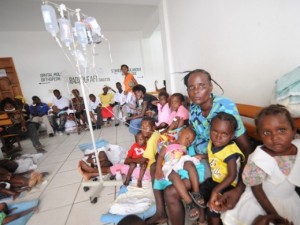
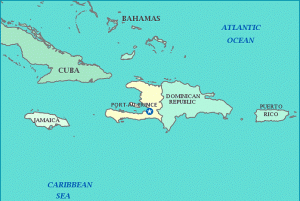
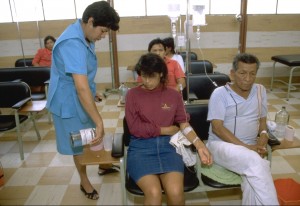
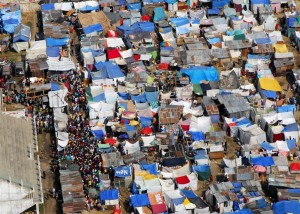
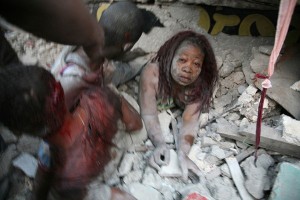
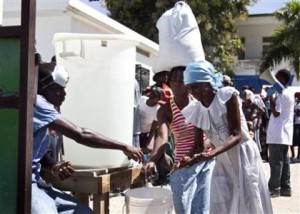
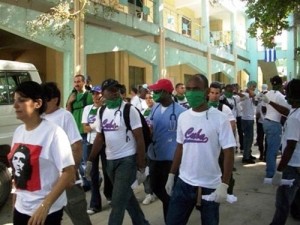
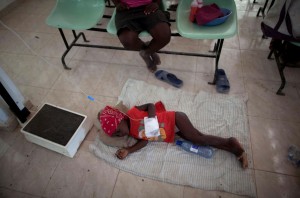




Hi im cierra im 13 years old i would love to go on a mission here and help these people out! if i had enough money i would go and help these poor people
Pingback: 5,000 Haitian Cholera Victims Sue United Nations « Repeating Islands